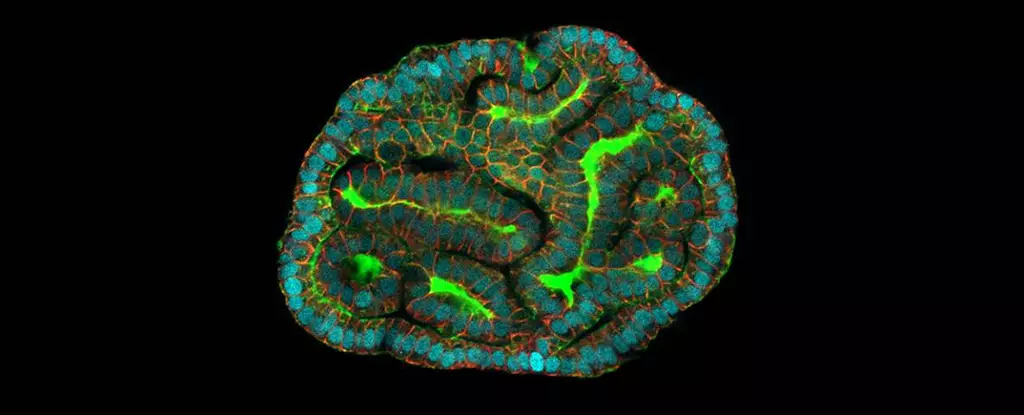In a groundbreaking study, scientists have managed to grow small but intricate models of human organs using live fetus cells. These organoids provide experts with a unique opportunity to delve deeper into our development process and explore potential treatments for malformations that occur in the womb. While these organoids are not exact replicas of organs, they closely mimic their functioning, allowing researchers to study diseases and other aspects of human biology that are challenging to investigate in living individuals.
An international team of researchers successfully grew lung, kidney, and intestine organoids from stem cells found in amniotic fluid. Amniotic fluid serves to protect and nourish the developing fetus and is collected from the mother without causing harm to the unborn baby during routine pregnancy testing. According to biologist Mattia Gerli from University College London (UCL), these organoids exhibit similar functions to the tissues they represent, including gene and protein expression. This breakthrough opens up avenues for studying both normal and abnormal development processes that were previously unattainable.
Previously, organoids were grown using cells from terminated fetuses, raising ethical concerns and regulatory restrictions. While adult stem cells have also been used to generate organoids, this occurs much later in the body’s developmental process. The ability to study problems in the womb weeks before birth offers a new perspective for researchers. Studying congenital diaphragmatic hernia (CDH), a condition that can lead to respiratory issues, using these organoids allowed researchers to identify genes associated with the condition. This valuable information could inform future treatments for such congenital conditions and revolutionize prenatal medicine.
By being able to assess a child’s congenital condition before birth, researchers are taking a significant step forward in prenatal medicine. Traditionally, diagnoses are made based on imaging techniques or genetic analyses, which may not provide a comprehensive understanding of the condition’s outcome. The use of organoids opens up opportunities to explore potential treatments for congenital diseases like cystic fibrosis before they manifest serious consequences. Testing drugs on these organoids could provide insights into fetal development that were previously inaccessible.
While the successful identification and development of organoids from fetus cells mark a major breakthrough in medical research, there is still much work to be done. The study authors highlight the need for further exploration of late human pregnancy and the potential applications of organoids in prenatal medicine. The exciting possibilities that lie ahead demonstrate the importance of continuous research in this field. As research progresses, the hope is to provide expectant parents with more information about their child’s health and potential treatments before birth.
As the world of medicine advances, the future of prenatal care may be evolving with the development of human organoids grown from fetus cells. This pioneering research offers a glimpse into a new realm of possibilities for understanding and treating conditions that affect unborn babies. The journey towards comprehensive prenatal care has taken a significant step forward, and the potential benefits for future generations are vast.

Leave a Reply